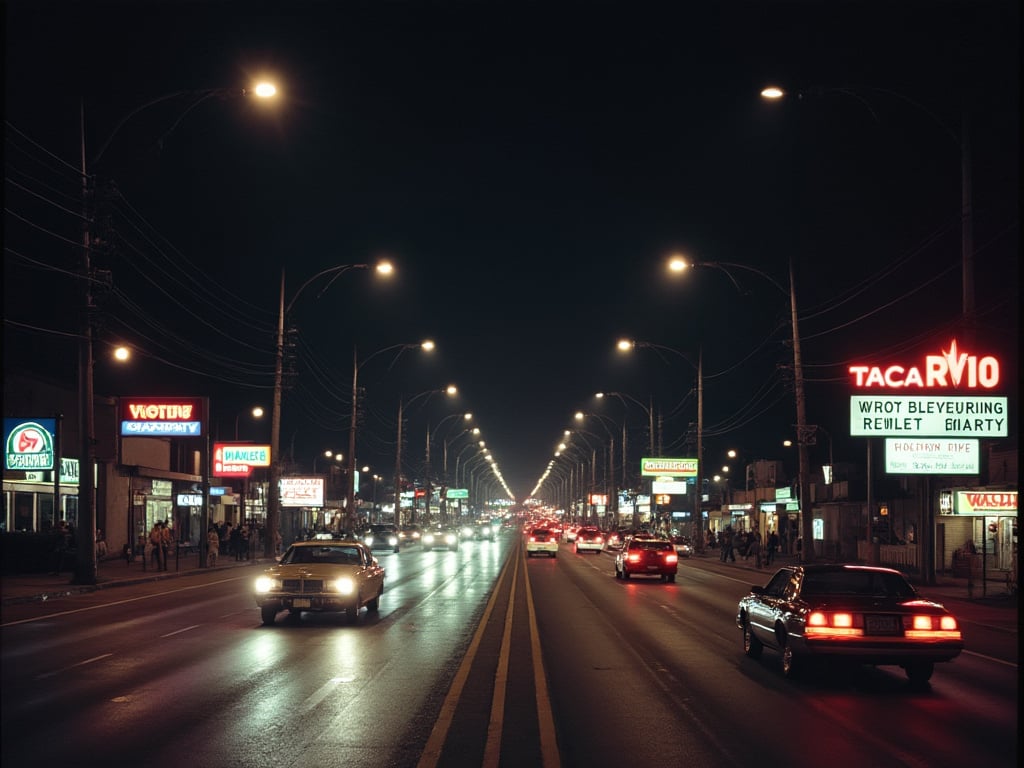Kamala Harris Says She’d Sign a Reparations Bill if Elected President: What That Means and Why It Matters
In a 2020 conversation with Reverend Al Sharpton, Kamala Harris, then a presidential candidate, made a bold promise that still resonates today. When asked if she would sign a bill to initiate the process of paying reparations to African Americans if elected, Harris didn’t hesitate. “When I am elected President, I will sign that bill,” she declared. This statement highlights her commitment to addressing one of the most complex and controversial issues in American history: reparations for slavery.
But what exactly does this mean? And why is it such a hot-button topic?
What Are Reparations for Slavery?
Reparations for slavery refer to the compensation or restitution given to African Americans to address the centuries of injustice, exploitation, and systemic racism stemming from slavery. It’s more than just a paycheck—it’s about recognizing the deep, long-lasting impact that slavery has had on African Americans, including economic disparities, educational inequalities, and ongoing discrimination.
The idea behind reparations isn’t new. It dates back to the post-Civil War era when the famous promise of “40 acres and a mule” was made to freed slaves—a promise that was never fulfilled. Today, reparations could take many forms, from direct financial payments to investments in education, housing, and healthcare for African American communities. The goal is to repair the damage done and provide a path toward equality and justice.
Why Do Some People Support Reparations?
Supporters of reparations argue that it’s a necessary step toward healing the nation’s deep racial wounds. They believe that the effects of slavery didn’t end with the Civil War or the Civil Rights Movement; they’ve been passed down through generations, manifesting in systemic inequalities that persist today.
For many, reparations are about accountability. It’s an acknowledgment of the wrongs committed and a commitment to addressing the inequalities that still exist. Proponents also see it as a way to close the racial wealth gap, which is a direct result of centuries of economic disenfranchisement of African Americans.
Why Do Some People Oppose Reparations?
Opposition to reparations is rooted in several arguments, ranging from practicality to principle. Some people believe that it’s impossible to assign blame or responsibility for historical events that occurred generations ago. They argue that the people alive today weren’t directly responsible for slavery and that reparations could create further division rather than unity.
Others worry about the financial cost and logistical challenges. How do you determine who is eligible for reparations? How much should be paid? And where would the money come from? These are complex questions without easy answers, fueling much of the opposition.
There’s also a broader philosophical debate. Critics argue that focusing on reparations could perpetuate a victim mentality rather than empowering African Americans to succeed in today’s society. They believe the focus should be on policies that promote equality and opportunity for all, rather than compensating for past injustices.
Should People With No Cultural or Ancestral Ties to Slavery Pay Reparations?
This question often comes up in discussions about reparations, and it’s a tricky one. America is a melting pot, with people from diverse backgrounds, many of whom have no direct connection to the history of slavery. Should these individuals bear the financial burden of reparations?
Supporters of reparations would argue that it’s about the collective responsibility of the nation. The benefits of slavery were not isolated to a few; they helped build the wealth and infrastructure of the entire country. As such, reparations are seen as a national obligation, not just the responsibility of those with direct ancestral ties to slavery.
Opponents, however, may feel that it’s unfair to ask people with no historical connection to slavery to pay for the sins of the past. They argue that reparations should be more targeted, focusing on those who were directly harmed, such as through discriminatory housing practices in the 20th century.
What’s Next?
Kamala Harris’s pledge to sign a reparations bill if she were elected president was a significant moment in the 2020 campaign, and it continues to spark debate. While Harris is now Vice President, the conversation about reparations is far from over. Whether or not reparations will ever become a reality remains to be seen, but the discussion is crucial in understanding how America grapples with its past and moves forward toward a more just future.
In the 2024 election cycle, Harris mentioned she has not changed her positions.
In 2020, then-candidate Joe Biden made a similar promise. No such study has been conducted by the Biden-Harris administration during their nearly four years in office.
- The End of an Era: Ocean City Bids Farewell to Gillian’s Wonderland Pier

If you spent your childhood summers in Ocean City, NJ, the news hits like a wave crashing against the pier—Gillian’s Wonderland Pier is closing its gates for good. This beloved amusement park, a staple on the Ocean City boardwalk since 1929, is preparing for its final curtain call, marking the end of a nearly century-old legacy that’s been a part of countless family vacations, first dates, and childhood memories.
For 94 years, Gillian’s Wonderland Pier has been more than just a collection of rides—it’s been the heartbeat of Ocean City. It all started with David Gillian, who after a devastating boardwalk fire in 1927, saw an opportunity to bring joy back to the community. He laid the foundation for what would become an iconic part of Ocean City’s identity, starting with just a Ferris Wheel and a Merry-Go-Round. Little did he know, he was creating a legacy that would be passed down through generations, becoming a symbol of summertime fun for countless visitors.
The park expanded and evolved under the leadership of David’s son, Roy Gillian, who took the reins in 1965 and turned Wonderland Pier into the sprawling amusement wonderland we know today. Roy didn’t just grow the business; he also played a significant role in the community, serving as Ocean City’s mayor and leaving his mark on both the town’s skyline and its history books.
But the magic of Wonderland Pier wasn’t just about the rides—it was about the people. Generations of locals and seasonal workers found summer jobs at the park, and visitors returned year after year, drawn by the park’s unique blend of nostalgia and excitement. Whether it was the creaky old wooden roller coaster that made your heart race or the smell of freshly made funnel cakes wafting through the air, Wonderland Pier was a sensory experience that left an indelible mark on everyone who walked through its gates.
This summer, however, the mood at Wonderland Pier was bittersweet. With news of its impending closure, the park saw massive lines as people rushed to relive their favorite memories one last time. Jay Gillian, who has managed the park for the past 47 years, made the difficult decision to close Wonderland Pier, citing the increasing challenges of maintaining the business. His retirement marks the end of an era, not just for the Gillian family, but for Ocean City itself.

As if the loss of Wonderland Pier wasn’t enough, this summer also saw the passing of Roy Gillian at the age of 94. Roy wasn’t just the mastermind behind the park’s success; he was a pillar of the community, a skilled pianist, and a beloved figure in Ocean City’s history. His contributions to the amusement industry and his community are too numerous to count, but his legacy will live on in the memories of everyone who ever set foot in his park.
As we say goodbye to Gillian’s Wonderland Pier, it’s hard not to feel a pang of nostalgia for the simpler times when summer meant a day at the boardwalk, a ride on the Ferris wheel, and a slice of pizza from 6th Street. The park may be closing, but the memories we made there will last a lifetime.

So, if you find yourself in Ocean City this fall, take a stroll down the boardwalk, hear the echoes of laughter from summers past, and remember the magic that was Gillian’s Wonderland Pier. It’s the end of an era, but the spirit of the pier will live on in the hearts of those who loved it.
- Kamala Harris Vowed to Kick Start America’s Reparation Process

Kamala Harris Says She’d Sign a Reparations Bill if Elected President: What That Means and Why It Matters
In a 2020 conversation with Reverend Al Sharpton, Kamala Harris, then a presidential candidate, made a bold promise that still resonates today. When asked if she would sign a bill to initiate the process of paying reparations to African Americans if elected, Harris didn’t hesitate. “When I am elected President, I will sign that bill,” she declared. This statement highlights her commitment to addressing one of the most complex and controversial issues in American history: reparations for slavery.
But what exactly does this mean? And why is it such a hot-button topic?
What Are Reparations for Slavery?
Reparations for slavery refer to the compensation or restitution given to African Americans to address the centuries of injustice, exploitation, and systemic racism stemming from slavery. It’s more than just a paycheck—it’s about recognizing the deep, long-lasting impact that slavery has had on African Americans, including economic disparities, educational inequalities, and ongoing discrimination.
The idea behind reparations isn’t new. It dates back to the post-Civil War era when the famous promise of “40 acres and a mule” was made to freed slaves—a promise that was never fulfilled. Today, reparations could take many forms, from direct financial payments to investments in education, housing, and healthcare for African American communities. The goal is to repair the damage done and provide a path toward equality and justice.
Harris promised Al Sharpton that ‘when’ she is elected president, she will assuredly sign the Bill to give reparations, paid for by the people that never OWNED slaves, to people that never WERE slaves!
— 🇺🇸ProudArmyBrat (@leslibless) September 2, 2024
Out of her mind! pic.twitter.com/IKUYKjIc6JWhy Do Some People Support Reparations?
Supporters of reparations argue that it’s a necessary step toward healing the nation’s deep racial wounds. They believe that the effects of slavery didn’t end with the Civil War or the Civil Rights Movement; they’ve been passed down through generations, manifesting in systemic inequalities that persist today.
For many, reparations are about accountability. It’s an acknowledgment of the wrongs committed and a commitment to addressing the inequalities that still exist. Proponents also see it as a way to close the racial wealth gap, which is a direct result of centuries of economic disenfranchisement of African Americans.
Why Do Some People Oppose Reparations?
Opposition to reparations is rooted in several arguments, ranging from practicality to principle. Some people believe that it’s impossible to assign blame or responsibility for historical events that occurred generations ago. They argue that the people alive today weren’t directly responsible for slavery and that reparations could create further division rather than unity.
Others worry about the financial cost and logistical challenges. How do you determine who is eligible for reparations? How much should be paid? And where would the money come from? These are complex questions without easy answers, fueling much of the opposition.
There’s also a broader philosophical debate. Critics argue that focusing on reparations could perpetuate a victim mentality rather than empowering African Americans to succeed in today’s society. They believe the focus should be on policies that promote equality and opportunity for all, rather than compensating for past injustices.
Should People With No Cultural or Ancestral Ties to Slavery Pay Reparations?
This question often comes up in discussions about reparations, and it’s a tricky one. America is a melting pot, with people from diverse backgrounds, many of whom have no direct connection to the history of slavery. Should these individuals bear the financial burden of reparations?
Supporters of reparations would argue that it’s about the collective responsibility of the nation. The benefits of slavery were not isolated to a few; they helped build the wealth and infrastructure of the entire country. As such, reparations are seen as a national obligation, not just the responsibility of those with direct ancestral ties to slavery.
Opponents, however, may feel that it’s unfair to ask people with no historical connection to slavery to pay for the sins of the past. They argue that reparations should be more targeted, focusing on those who were directly harmed, such as through discriminatory housing practices in the 20th century.
What’s Next?
Kamala Harris’s pledge to sign a reparations bill if she were elected president was a significant moment in the 2020 campaign, and it continues to spark debate. While Harris is now Vice President, the conversation about reparations is far from over. Whether or not reparations will ever become a reality remains to be seen, but the discussion is crucial in understanding how America grapples with its past and moves forward toward a more just future.
In the 2024 election cycle, Harris mentioned she has not changed her positions.
In 2020, then-candidate Joe Biden made a similar promise. No such study has been conducted by the Biden-Harris administration during their nearly four years in office.
- Ten Ways GenX “Did Jersey” Better Than Kids Today

Back in the day, being a Gen Xer in New Jersey meant engaging in a host of activities that kids today might find either completely foreign or impossibly nostalgic. One of the most iconic pastimes was hanging out at the mall. Spots like the Garden State Plaza or Cherry Hill Mall were more than just shopping destinations—they were social hubs where teens spent countless hours. Without smartphones to distract them, these gatherings were all about face-to-face interaction, whether that meant playing arcade games, browsing through music stores, or grabbing a slice of pizza at Sbarro.
Another quintessential experience was cruising the boulevard, particularly along Route 35 near the Jersey Shore. This wasn’t just about getting from point A to point B; it was a social event. With hair metal blasting from car stereos and the thrill of spotting friends or meeting new ones, this ritual embodied the freedom of adolescence before GPS and smartphones were a thing.

Photos – AI Generated depictions of live in the 1980s. Playing outside until dark was also a staple of Gen X childhoods in New Jersey. Long before the internet and gaming consoles took over, kids would spend entire days playing stickball, manhunt, or just biking around the neighborhood. The only rule? Be home when the streetlights came on.
The drive-in movie theater was another cherished venue. Watching a double feature from the back of a car at places like the Delsea Drive-In was a summer tradition. Whether on a date or with a group of friends, these outings were a memorable way to enjoy films in a way that today’s streaming services can’t replicate.
Roller rinks were yet another popular hangout. Skating at places like the Cherry Hill Skatepark was more than just an activity—it was a social scene. Teens would skate to the latest hits, and if you were lucky, maybe you’d get to hold hands with your crush during a slow song.

Music was central to Gen X culture, and catching concerts at iconic venues like the Capitol Theatre in Passaic or Asbury Park’s Convention Hall was a rite of passage. These venues hosted some of the biggest names in music, and attending these shows was an unforgettable experience that defined the era.
Arcades, filled with pinball machines and classic games like Pac-Man and Space Invaders, were another go-to spot. The sounds of clinking quarters and electronic beeps filled the air as kids tried to beat their high scores, a far cry from today’s online gaming.
Fishing at local lakes and streams was a weekend staple for many. Heading to spots like Round Valley Reservoir with a fishing rod in hand was a peaceful and simple way to spend the day, connecting with nature in a way that seems almost quaint now.

Mixtapes were another hallmark of the Gen X experience. Recording songs from the radio onto cassette tapes was a labor of love, each tape carefully curated to reflect personal tastes or to share with friends. This was a time-consuming task that involved waiting for your favorite song to play and hitting “record” at just the right moment.

Finally, attending local fairs and carnivals was an eagerly anticipated event every summer. Whether it was the excitement of the rides, the challenge of winning a prize at a game booth, or just indulging in cotton candy, these fairs were a highlight of the season.

These experiences, from mall hangouts to drive-in movies, defined what it meant to grow up in New Jersey during the Gen X years—a time when socializing was all about real-life interactions, and entertainment was enjoyed in person, not through a screen.


